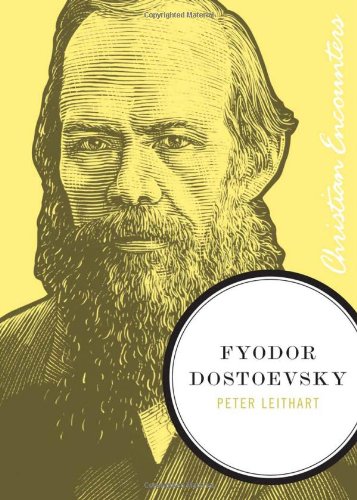 Dostoevsky's Vision for Russian and the World
Dostoevsky's Vision for Russian and the WorldWithout a coherent framework, a reader of several of Dostoevsky’s works is easily confused. Dostoevsky’s deepest passions appear different, even contradictory in various of his works. Some are more explicitly “Christian” or “Orthodox” than others. Some present general grievances about the condition of Russian peasants. Others portray a very specific solution for bringing out their freedom. Some characterizations are little more than a Slavophilic portrait of an oppressed populace. Others are highly developed Christ-figures. Although Dostoevsky was a literary genius from the publication of his first work, his thought progressed throughout his life. Thus, being able to connect Dostoevsky’s works to specific events in his life and in Russian history aids his readers in understanding what he is all about.
In addition to being somewhat of a moving target, Dostoevsky’s most developed thought was complex, and some of its subtle nuances or even broad features are easily missed by even the most astute reader. Dostoevsky experienced many life-changing events. He was prone to various obsessions and besetting sins. Biographies that attempt to detail his many experiences, shifts in thought, and the resulting phases in his writing tend to become long, cumbersome and, frankly, boring. The average reader who appreciates his literary prowess and whose heart resonates with many of his particular passions is, thus, left with few places to turn for an accurate yet stimulating, complete yet concise, well-written biographical framework. Peter Leithart’s brief narrative biography of Fyodor Dostoevsky fulfills these needs.
Leithart frames this brief biography as a fictionalized conversation that an elderly Dostoevsky has with his literary acquaintance, Apollon Maikov. The conversation is a one-sided dialogue in which Dostoevsky reminisces about his life. As such, Leithart puts into Dostoevsky’s mouth Dostoevsky’s own interpretation of his life and works at a time that he is in the full maturity of his thought. Leithart weaves together one by one the most significant events, philosophies, and people that formed the man who created The Brothers Karamazov, the highest pinnacle of his thought and the apex of his literary ability. During the course of the conversation, Leithart flashes back to detail the specifics of these formative influences. The reader sits and listens at Dostoevsky’s own fireside, shivers with him in his Siberian prison, weeps with him over the bodies of his dead children, trembles with him as he throws the dice, and agonizes with him over the deplorable condition of the hearts of his fellow Russians.
The end result of Leithart’s work is a very readable, accessible, and enjoyable portrait of a highly complex and awe-inspiring literary giant. Little additional work is required of a reader of Dostoevsky to place one of his writings into a specific phase of his life. And for the reader who wants to dig deeper, copious endnotes provide a way. Like all biographies, this historical “fiction” subjectively interprets Dostoevsky’s ideas, plants verbose ideas in his mind, and places a vernacular on his lips that may be somewhat foreign to him. Yet, Leithart was overwhelmingly successful in his project of introducing Dostoevsky to the reading public and elucidating the writings of a foreign author who to many appears highly intimidating. The final chapter is Leithart at his best as he portrays Dostoevsky as “The Prophet” giving a speech about his literary hero Alexander Pushkin in which he articulates his vision for Russia and for the world. Few readers will close this book unmoved.
No comments:
Post a Comment